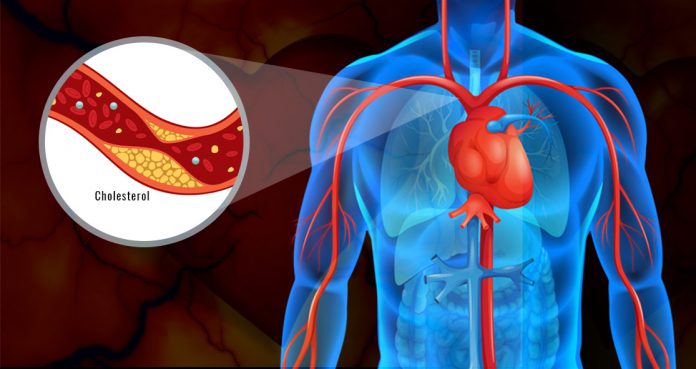A new study, published in The Lancet, has found a link between bad (LDL) cholesterol levels in young adults under 45 and the risk of heart disease and stroke.
Previous studies have already found that high cholesterol could increase the risk of heart disease and stroke. In the United States, heart disease is one of the leading causes of death, while stroke is the fifth leading cause of death.
The new observational study suggests that increased LDL cholesterol levels at younger adulthood could help predict heart disease risk at 75 years of age.
Researchers analyzed the findings of 38 studies that were carried out in the United States, Europe, and Australia, which included more than 400,000 people with no cardiovascular disease at the start of the study. The researchers tracked all the participants over the decades. They also took the details of their cardiovascular events.
The researchers found 54,542 incidents of heart disease (fatal or non-fatal) and stroke.
The long-term risk of heart disease was among those who were under 45 years of age.
Prof. Barbara Thorand of the German Research Center for Environmental Health in Neuherberg said, “This increased risk in younger people could be due to the longer exposure to harmful lipids in the blood.”
Considering the findings of the study, the researchers confirmed that blood cholesterol levels played an important role in predicting cardiovascular risk over time.
“Our estimates suggest that halving non-HDL cholesterol levels may be associated with reduced risk of cardiovascular events by the age of 75 years and that this reduction in risk is larger the sooner cholesterol levels are reduced,” said study co-author Prof. Stefan Blankenberg.
He noted, “The risk scores currently used in the clinic to decide whether a person should have lipid-lowering treatment only assess the risk of cardiovascular disease over 10 years, and so may underestimate lifetime risk, particularly in young people.”
The researchers explained that further studies are needed to understand whether the early intervention could be advised to younger people with high cholesterol levels in order to cut down the 10-year cardiovascular risk. Please note that people with high blood cholesterol are often asymptomatic and many are not aware that they have high levels. Your physician would be able to check your levels with a simple blood test.























